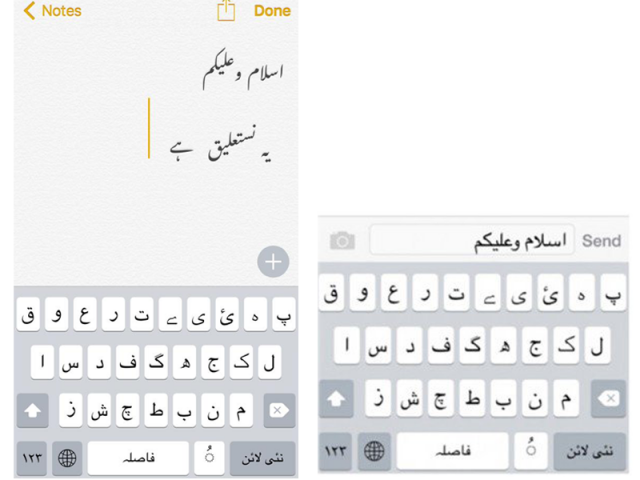A victory for Urdu
The step taken by Apple will help save a language which has faced a consistent threat

The fact is that Urdu is a beautiful language used by poets, writers and scholars for centuries. The Nastaliq script, developed in 14th century Persia, brings with it a rhythm and flow that is unique. It has been used by calligraphers and others to depict the beauty of Urdu writing. The step taken by Apple will help save a language which has faced a consistent threat. The availability of Nastaliq on keyboards should encourage people to use the purer version of Urdu once more and prevent some of the corruption which we are currently seeing. A tool is now available to help ensure this. The willingness to use it and keep Arabic — another beautiful language — out of Urdu is important. It makes little sense to mingle the two and in the process ruin the elegance of both. This is something about which we need to spread awareness. The campaign to introduce Nastaliq will now be taken to Microsoft as part of the effort to promote a language the subcontinent has used for centuries.
Published in The Express Tribune, June 14th, 2015.
Like Opinion & Editorial on Facebook, follow @ETOpEd on Twitter to receive all updates on all our daily pieces.














COMMENTS
Comments are moderated and generally will be posted if they are on-topic and not abusive.
For more information, please see our Comments FAQ